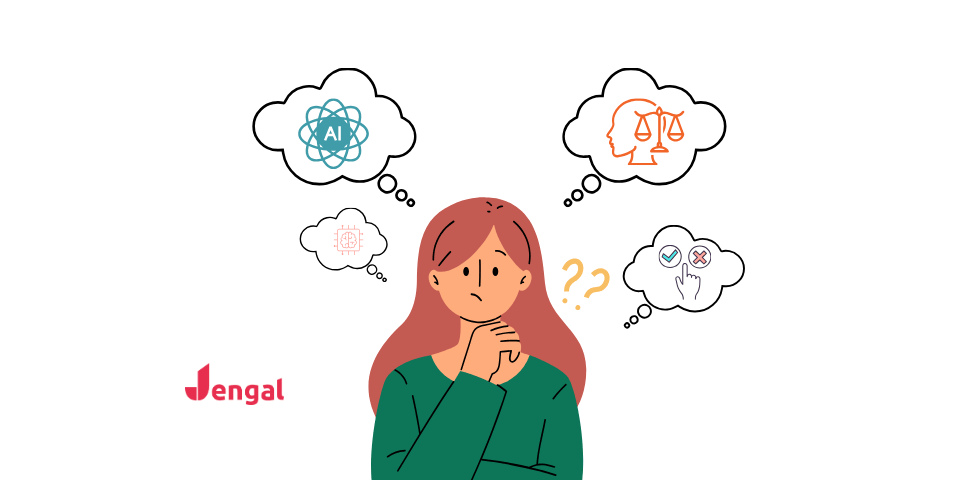Artificial intelligence (AI) is a system that enables machines to perform human-like tasks, learn from experience and adapt to new inputs. However, even after this definition, you might still ask yourself, what is artificial intelligence? AI technology is basically aimed at developing and contributing to human competencies. Companies use artificial intelligence in so many fields, from customer service to supply chain management, depending on the sector.
In this article, we will examine what AI service is, look at the fields where it is used, discuss the differences between strong and weak artificial intelligence, and provide general information about it. After all, the development of artificial intelligence is one of the most important technological advances of our day.
Table of Contents
- What Is Artificial Intelligence?
- How Does AI Work?
- Why Is Artificial Intelligence Important?
- Difference Between Strong AI vs. Weak AI
- Examples of AI Technology and How It Is Used
- Ethical Use of Artificial Intelligence
- Do AI Tools Have a Future?
- Unlocking the Potential: Power of Artificial Intelligence
- Frequently Asked Questions About
What Is Artificial Intelligence?
We ask the question, “What is artificial intelligence?” and we can answer it in the simplest way, as systems that imitate human intelligence to fulfil certain tasks can improve themselves by repeating the information they collect. AI technology makes it possible for machines to learn from experience, adapt to new inputs and perform human-like tasks. Most examples of AI you hear about today – from computers playing chess to self-driving cars – are based on deep learning and natural language processing. Using these AI technologies, computers can be trained to perform specific tasks by processing large amounts of data and recognizing patterns in the data.
How Does AI Work?
After answering the question “What is artificial intelligence?” it is time to learn how AI simulation works. AI works by combining large-scale data with intelligent algorithms and iterative processing. In this process, patterns or features of the processed data enable AI to learn automatically. Artificial intelligence with various functions works with different methods and technologies. These methods and technologies can be listed as machine learning, artificial neural networks, deep learning technology, cognitive computing, advanced algorithms, and graphical processing units.
You can check our our related article : How to Become a Prompt Engineer: A Comprehensive Guide
Why Is Artificial Intelligence Important?
Artificial Intelligence has an important place in human life as it automates repetitive learning and data exploration, analyzes more and deeper data using neural networks with many hidden layers, works with previously impossible accuracy thanks to deep neural networks, makes the most of data, adds intelligence to existing products, and adapts through progressive learning algorithms to allow data to do the programming. The AI tools and AI technology used have a great place in why artificial intelligence is that important.
Difference Between Strong AI vs. Weak AI
The questions to be asked about AI do not end with answering the question “What is artificial intelligence?”. The ability of machines to be programmed and show intelligent behaviour is known and accepted as weak artificial intelligence. The ability of machines to be programmed and become intelligent and conscious is known as strong artificial intelligence, which is also controversial.
Weak AI programs understandably do not exhibit any creativity and do not have a clear ability to learn independently in a universal sense. Digital assistant systems such as Alexa, Siri and Google Assistant also fall into the category of weak AI.
Strong AI programs, on the other hand, have yet to be fully realized. The underlying goal of strong AI is to enable natural and artificial intelligence environments (e.g. humans and robots) to operate safely in a shared domain of activity.
Examples of AI Technology and How It Is Used
These days, AI technology is widely applied in many different contexts and to differing degrees of complexity. Popular AI tools include recommendation algorithms that make suggestions about what you would like to do next and chatbots that show up on websites or as smart speakers (like Alexa or Siri). AI technology is employed in weather and financial forecasting, production process optimization, and reduction of duplicate cognitive effort (e.g., tax accounting or editing). AI systems are also utilized for language processing, gaming, driving autonomous cars, and other tasks.
Ethical Use of Artificial Intelligence
As AI technology gradually progresses, the ethical dimensions of this technology have also become a problem that needs to be addressed. Since AI systems are used in areas such as health, finance, education and law, they actually have a close relationship with ethics and directly affect human life. For this reason, the correct use of AI technology is important in terms of ethics. Giving importance to the confidentiality of personal information in the process of collecting personal information can be given as an example of this ethical use.
Software development has become an important and indispensable profession with the advancement of technology day by day. Software goes beyond sectors,...
To be fair, there is some complicated history between the two languages. Sun Microsystems created Java, an object-based language with statically defin...
You may be want to take look our related article: Advantages and Disadvantages of Artificial Intelligence (AI)
Do AI Tools Have a Future?
We answered the question, “What is artificial intelligence?” but did artificial intelligence have a future? Many predictions can be made about the future of AI technology. Some of these future predictions may be positive for people, while others may be negative. One of the examples of a negative situation is; It may be the loss of people’s privacy rights and the end of people’s relationships with society. Whether AI technology promises us a positive or a negative future depends on how people will use artificial intelligence.
Unlocking the Potential: Power of Artificial Intelligence
“What is artificial intelligence?” It has been understood from answering the question many times that artificial intelligence can provide us with advantages in many areas by imitating human intelligence and human abilities, but at the same time, these advantages can also turn into negative scenarios depending on people’s use of AI technology. AI tools can be used in many areas, from law to health, from health to finance, and from finance to education. This breadth of use makes artificial intelligence even more important for humanity.






No comments to show.